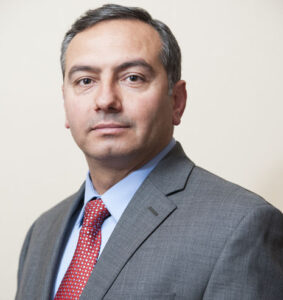
By Fares Braizat, Dec 26,2021
The “debate”, using it metaphorically here, about national identity that ensued after the publication of the outcome of the Royal Committee to Modernize the Political System (RCMPS) is thought provoking. The one-sided avalanche of accusations originated with an accusatory claim that the RCMPS coined a new phrase “collective national identity” which “indicates hidden agenda”. Then, a few social media activists picked it up and continued using the accusing language as the main defining and framing discourse of a systematic attack on the committee’s outcome. Two former prime ministers used that language too, and expressively accused the committee of hiding something up its sleeves.
Let us examine the discourse and the motives.
The accusations were based on cherry-picked, selective and out of context phrases. The attackers, who appeared to be fishing for something, neither presented a coherent argument nor were consistent in their declared, on-the-record, positions. The declaratory, lamenting, and discursive language they used reflects politically motivated attacks that lack objectivity, logic and reason.
The 90-member strong committee was composed of all colors of the ideological spectrum, from right to the left and everything in between. None of these members objected to any point in the final document, including the usage of “collective national identity” which is not new in the political discourse in Jordan. Late King Hussein, King Abdullah and many national documents emphasized it in many forms and by using phrases such as “Jordanians from all origins and walks of life”.
The legal interpretation of this collective identity is the nationality law in which all Jordanians who hold a national ID number are defined as rightful citizens who have civic obligations, civil liberties and political rights.
Jordan, unlike all other countries in the region, has objectively become the closest to the “melting pot” despite the elite-centered subjective declarations to the opposite. Its pot is full of ingredients: Arabs from Jordan, Palestine, Syria, Lebanon, Iraq, Hijaz, Libya, Sudan, Egypt, and Circassians, Chechens, Kurds, Pakistanis, Bengalis, Asians, and Turkmen; they are Muslims and Christians. These are yet to become more citizen-centered horizontal than vertical “political society”. The process of building a political society takes time, ability to manage differences, compromise, clarity of vision, and determination to reach the goal of legally balanced state-citizen and state-society relations.
These primordial identities, ethnic and religious, have been present in all societies, including the most advanced democracies, but their presence in a democratic process does not mean they have become civic identities, although democracy tends to smooth sharp edges. Civic identities are based on free individual choice. One may choose one of them freely, too. However, the danger rests in chauvinistic interpretation of primordial identities where they become exclusionist, isolating, and self-righteous.
Multiculturalism in a democratic setting makes it clear that “cultural/primordial” identities ought to stay apolitical. This means when a cultural identity seeks political representation by using primordial foundations for acquiring political power, the civic premise of “civil polity” changes and turns from horizontal civic identity to vertical primordial identity.
History of war and peace teaches us that the intensification of vertical/primordial/cultural identities leads to a range of problems, from silent conflicts to all-out violent wars based on, largely, illusionary and imaginative animosities.
Vertical identities are exclusionary by nature. Hence, using them as political identities contributes to the disintegration of “societies” into “sub-societies”, as is the case in Lebanon, Iraq, Syria, Yemen and Israel, among many other countries such as Catalonia, in Spain, and in Eastern Europe.
Despite the reductionist talk about vertical identities in Jordan, the horizontal identity has very promising potential as a rational choice to develop the country. The changes to the election and political parties’ laws will pave the way for a more horizontal representation of citizens during the next 10 years.
The future belongs to those who work for it and we have to make sure that the unequal economic development gap between Amman and the rest of the governorates is bridged in order to rebalance state-society relations and build institutional legitimacy based on development-guided vision for the country.
The overwhelming majority of Jordanians are “proud” to be Jordanians. Making them “very proud” requires a lot more serious work across the board.
The writer is the Chairman of NAMA Strategic Intelligence Solutions, H.E. Dr. Fares Braizat.
This article was originally published in Jordan News on December 26, 2021. For the original article source, click here.
